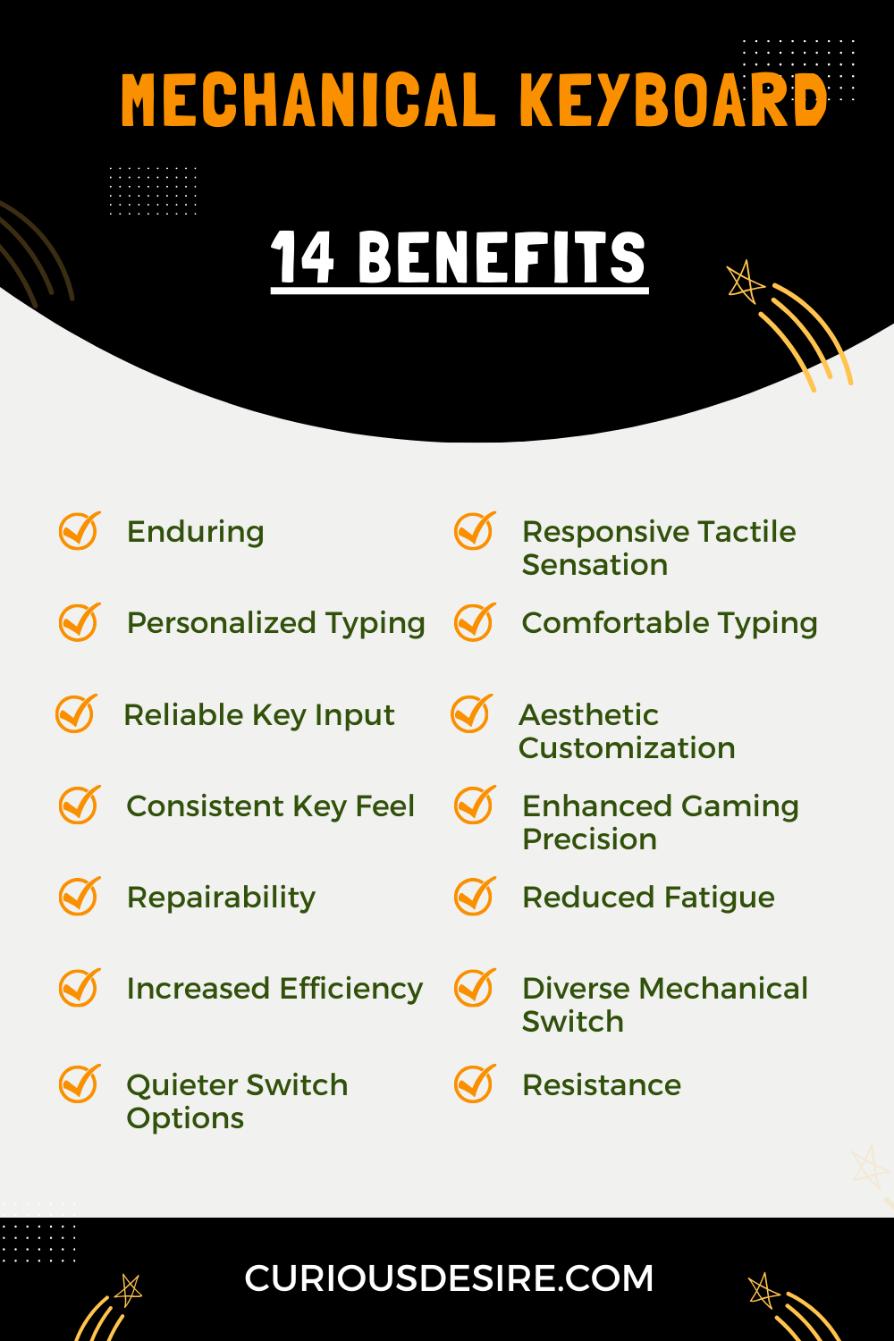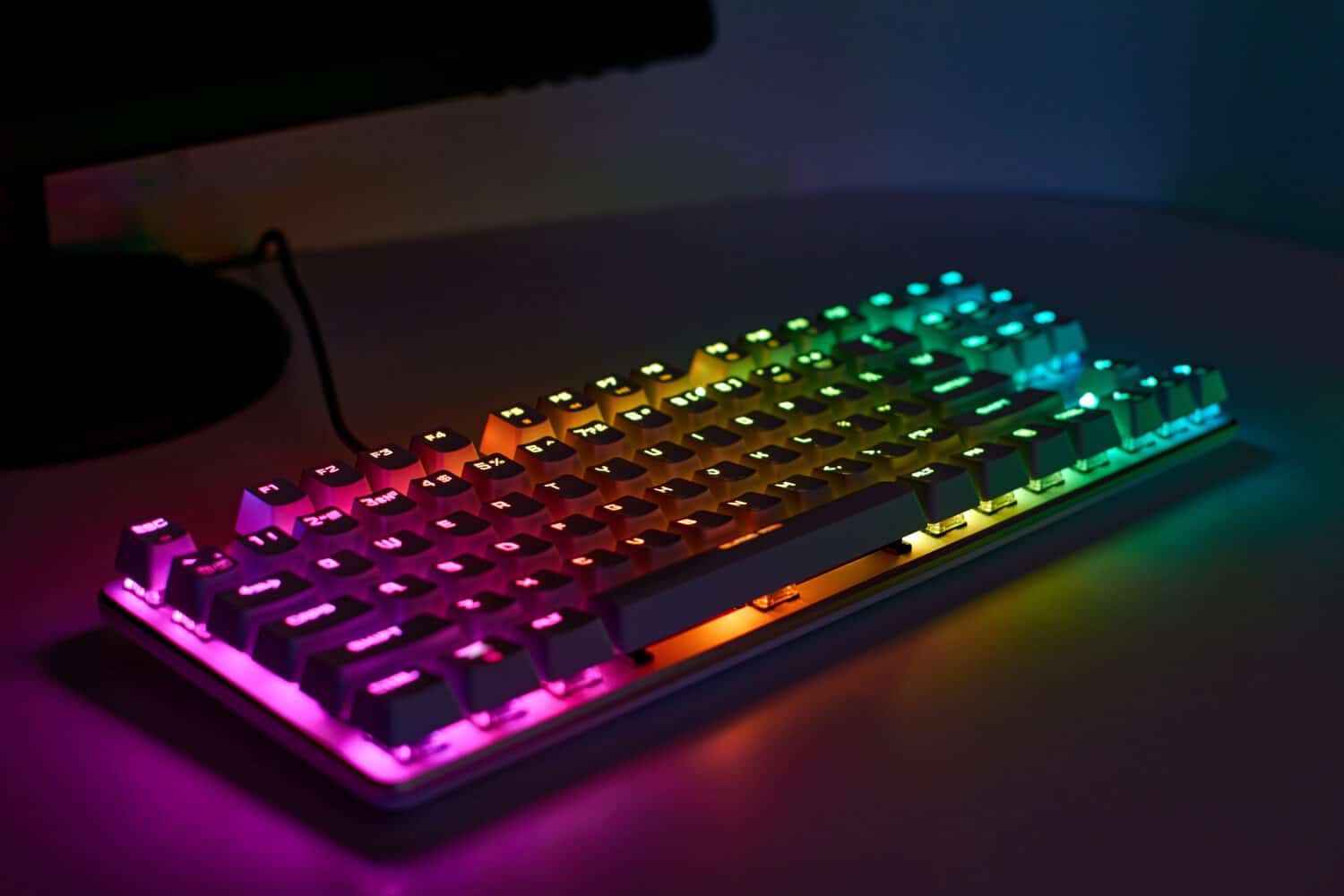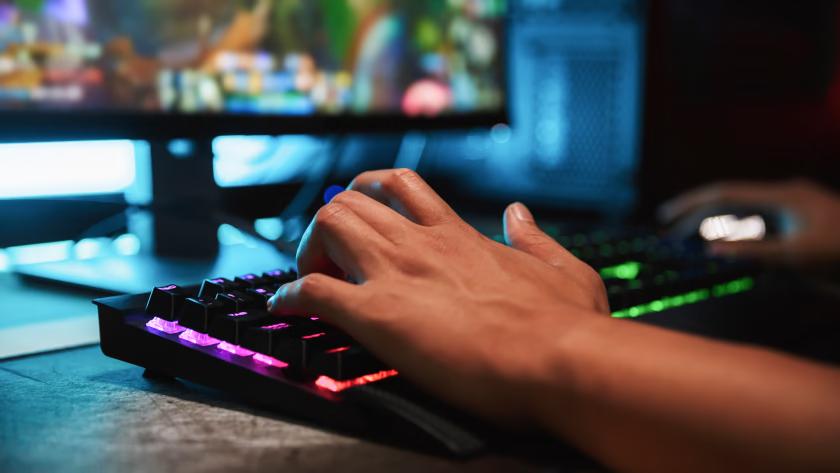Mechanical keyboards are more than mere input devices; they are precision-crafted tools that redefine the art of typing.
In this article, we’ll highlight some of the amazing benefits of mechanical keyboards that make them stand out.
Here are the top 5 benefits of mechanical keyboards:
- Responsive Tactile Sensation
- Comfortable Typing Experience
- Aesthetic Customization
- Enhanced Gaming Precision
- Personalized Typing
[toc]

Benefit 13: Quieter Switch Options
While mechanical keyboards are known for their audible clickiness, some mechanical switches offer quieter options.
These switches provide a compromise between the tactile feedback of mechanical keyboards and a quieter typing experience.
This can be advantageous in shared or quiet environments where minimizing keyboard noise is a priority, making mechanical keyboards adaptable to various usage scenarios.
Benefit 14: Resistance to Dust and Spills
Many mechanical keyboards are designed with a more open switch design, which can make them resistant to dust and liquid spills.
The gaps between the switches allow debris to fall through rather than getting trapped, reducing the likelihood of malfunctions due to accumulated dust.
This feature enhances the durability of mechanical keyboards and makes them more resilient in everyday usage environments.
Mechanical Keyboard Benefits FAQs
1. What is the advantage of a mechanical keyboard?
Mechanical keyboards offer several advantages, including durability, tactile feedback, customization options, and improved typing experience.
The individual mechanical switches used in these keyboards can withstand millions of keystrokes, providing a longer lifespan compared to membrane keyboards.
2. Are mechanical keyboards better?
For many users, yes. Mechanical keyboards are often considered better due to their durability, tactile feedback, and customizable features.
However, personal preferences vary, and some people may prefer the softer feel of membrane keyboards.
3. What are the advantages of mechanical switches?
Mechanical switches provide advantages such as a longer lifespan, consistent actuation force, and tactile feedback.
Users can choose from various switch types, allowing customization based on their preferred typing experience, whether it be a light touch, a tactile feel, or a more substantial, clicky response.
4. Is a mechanical keyboard good for health?
Mechanical keyboards are generally considered ergonomic and can be good for health.
The tactile feedback and reduced keypress force may help reduce typing fatigue and strain.
However, individual preferences and comfort levels may vary.
5. Is a mechanical keyboard better than a laptop?
Comparing a mechanical keyboard to a laptop keyboard depends on personal preferences and use cases.
Mechanical keyboards are often preferred for typing comfort and gaming due to their tactile feedback, while laptop keyboards prioritize portability.
6. Do mechanical keyboards break faster?
No, mechanical keyboards are known for their durability, and their individual switches can withstand tens of millions of keystrokes.
They are designed to be robust and last longer than many membrane keyboards.
7. Which is the best type of mechanical keyboard?
The best type of mechanical keyboard depends on personal preferences and specific needs.
Factors such as switch type, size (full-size, tenkeyless, etc.), and additional features like RGB lighting contribute to choosing the best keyboard for an individual.
8. What is the difference between a mechanical keyboard and a normal keyboard?
The primary difference lies in the switches. Mechanical keyboards use individual mechanical switches beneath each key, offering tactile feedback and durability.
In contrast, “normal” keyboards, often membrane-based, use a different technology that may lack the same tactile feel and durability.
9. Is it worth switching to a mechanical keyboard?
Switching to a mechanical keyboard is a subjective decision. If you value tactile feedback, customization, and durability, it might be worth the switch.
However, personal preferences, typing habits, and budget should be considered.
10. Why are mechanical keyboards so expensive?
The cost of mechanical keyboards can be attributed to the quality of materials, intricate design, and the precision engineering of individual switches.
Customization options, build quality, and brand reputation also contribute to the higher price.
11. Who uses a mechanical keyboard?
Mechanical keyboards are used by a diverse range of individuals, including gamers, programmers, writers, and professionals who value a tactile typing experience and customization options.
12. Why do gamers prefer mechanical keyboards?
Gamers often prefer mechanical keyboards for their precise actuation, tactile feedback, and durability.
These features contribute to faster response times, improved gaming performance, and a more satisfying gaming experience.
13. What is the healthiest keyboard?
The healthiest keyboard depends on individual needs and preferences.
Mechanical keyboards can be considered healthy due to their tactile feedback and customizable features, but ergonomic keyboards with split designs may also be suitable for promoting better typing posture and reducing strain.
14. Is a mechanical keyboard good for your fingers?
A mechanical keyboard can be beneficial for your fingers due to the reduced keypress force and tactile feedback, potentially reducing typing fatigue.
However, individual comfort levels and preferences vary.
15. What are the cons of a mechanical keyboard?
Cons of mechanical keyboards include their higher cost, potential noise (depending on the switch type), and a slightly steeper learning curve for those transitioning from membrane keyboards.
Additionally, they may be heavier and bulkier than some alternatives.
16. What is the average life of a mechanical keyboard?
The average life of a mechanical keyboard is often measured in keystrokes and can range from tens of millions to over a hundred million keystrokes, depending on the quality of the switches used.
This typically results in a longer lifespan compared to many membrane keyboards.

